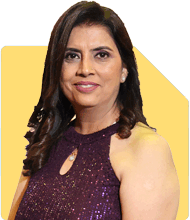Sushil Sukhwani |324 Answers |Ask -Follow
Study Abroad Expert - Answered on Mar 28, 2024

My son wants to do computer science in US in georgiatech or wharton . What would be per year expenses including fee ,stay ,food and other expense??waiting for reply . thanks
Coming to the expenses part, the cost of pursuing a bachelor's degree would be $15,000 to $40,000 per year. Whereas, the cost of studying for a master's program would be $15,000 to $50,000 per year.Furthermore, other expenses (including food, accommodation,clothing, entertainment, travel, and incidental costs) would cost you $12,000 to $20,000 per year.
For further assistance, you can get in touch with us.
You may like to see similar questions and answers below
Geeta Ratra |125 Answers |Ask -Follow
Visas, Study Abroad Expert - Answered on May 22, 2023
Sushil Sukhwani |324 Answers |Ask -Follow
Study Abroad Expert - Answered on Jul 31, 2023
Geeta Ratra |125 Answers |Ask -Follow
Visas, Study Abroad Expert - Answered on Jan 03, 2024
Geeta Ratra |125 Answers |Ask -Follow
Visas, Study Abroad Expert - Answered on Sep 27, 2023
Sushil Sukhwani |324 Answers |Ask -Follow
Study Abroad Expert - Answered on Mar 23, 2024
Krishna Kumar |254 Answers |Ask -Follow
Workplace Expert - Answered on Apr 29, 2024
Ramalingam Kalirajan |939 Answers |Ask -Follow
Mutual Funds, Financial Planning Expert - Answered on Apr 29, 2024
Ramalingam Kalirajan |939 Answers |Ask -Follow
Mutual Funds, Financial Planning Expert - Answered on Apr 29, 2024
Ramalingam Kalirajan |939 Answers |Ask -Follow
Mutual Funds, Financial Planning Expert - Answered on Apr 29, 2024
Ramalingam Kalirajan |939 Answers |Ask -Follow
Mutual Funds, Financial Planning Expert - Answered on Apr 29, 2024
Ramalingam Kalirajan |939 Answers |Ask -Follow
Mutual Funds, Financial Planning Expert - Answered on Apr 29, 2024
Ramalingam Kalirajan |939 Answers |Ask -Follow
Mutual Funds, Financial Planning Expert - Answered on Apr 29, 2024
Ramalingam Kalirajan |939 Answers |Ask -Follow
Mutual Funds, Financial Planning Expert - Answered on Apr 29, 2024
Ramalingam Kalirajan |939 Answers |Ask -Follow
Mutual Funds, Financial Planning Expert - Answered on Apr 29, 2024
Ramalingam Kalirajan |939 Answers |Ask -Follow
Mutual Funds, Financial Planning Expert - Answered on Apr 29, 2024























